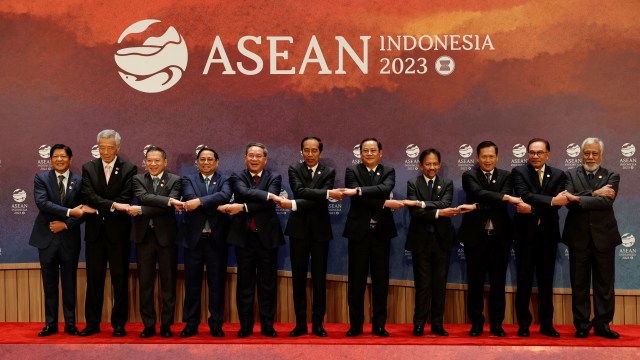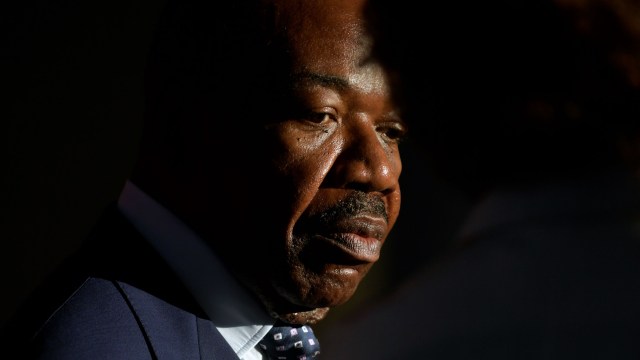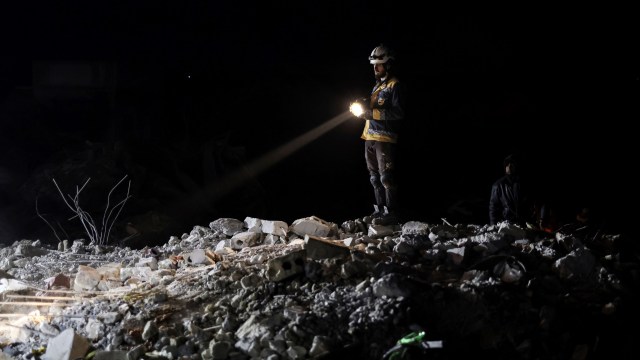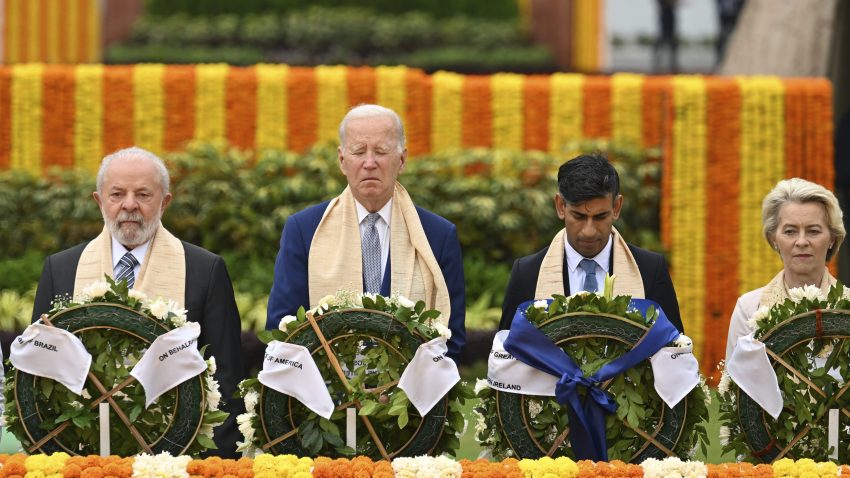Hello, everyone. Today at WPR, we’re covering last week’s ASEAN summit and BRICS’ dream of de-dollarization.
But first, here’s our take on today’s top story:
G-20 summit: This weekend’s Group of 20 summit, held in New Delhi, resulted in a surprise consensus in a joint declaration that papered over key differences within the group over the war in Ukraine. The joint declaration also reaffirmed the group’s commitment to debt relief and climate financing for Global South countries, even if it made little progress on steps toward concrete action on a range of other global challenges. (Reuters)
Our three major takeaways—and their caveats:
- Hosting the G-20 summit in New Delhi further cemented India’s centrality to global politics and multilateralism and caps a year in which PM Narendra Modi strengthened his and the country’s image abroad, including high-profile visits to the U.S. and France. But that strengthened image has obscured some of India’s flaws, starting with the illiberal slide the country has taken under Modi, whose brand of Hindu nationalism has accentuated divisions within the country. Similarly, the poorest Indians were largely hidden from view this weekend in an attempt to project a better image of New Delhi during the summit.
- The fact that the summit declaration addressed debt relief and climate financing for the Global South—two of India’s priorities during its G-20 presidency—highlights the increasingly prominent role the Global South’s needs are playing in multilateralism as well as the degree to which multilateralism has increasingly become “multipolarism.” But the amount of bandwidth expended in seeking consensus for the summit declaration on the war in Ukraine, as well as several side agreements clearly targeting China, underscored the degree to which the G-20 has shifted from being a platform for collective action to address global challenges to becoming an arena for geopolitical competition.
- Finally, U.S. President Joe Biden’s bilateral meeting with Modi in New Delhi and his ongoing visit to Hanoi highlight how states like India and Vietnam, among others, are continuing to boost their ties with the U.S. in unprecedented ways, largely due to concerns about China’s regional ambitions. But even as they boost ties with Washington, those same states are not necessarily aligning with the U.S. in its competition with China and Russia, nor are they downgrading ties with Beijing and Moscow.


Another ASEAN Summit Gives China’s Bullying Tactics a Pass
During his inaugural appearance at last week’s Association of Southeast Asian Nations, or ASEAN, summit, Chinese Premier Li Qiang painted a rosy picture of China-ASEAN relations. The broadly encouraging economic picture, however, has gone hand in hand with rising geopolitical tensions in the region, including between ASEAN member states and China.
China seems to be counting on its economic influence with those member states to outweigh its bullying tactics, but that approach has been at best ineffectual and at worst counterproductive. Nevertheless, in its current shape, ASEAN is either unwilling or unable to check Beijing’s worst instincts. Richard Javad Heydarian explains why.
Argentina Shows the Limits of BRICS’ De-Dollarization Dreams
Two developments from last month’s BRICS summit seem to be at odds with each other.
- BRICS leaders debated the potential for so-called de-dollarization of the global economy, meaning the promotion of alternative currencies to the U.S. dollar.
- BRICS invited six new members to join the group, including Argentina, a country whose voters have made it clear that they plan to elect a president next month who will increase the use of the U.S. dollar at home.

James Bosworth explains in his column this week why Argentina’s debate over the role of the U.S. dollar in its economy should serve as a cautionary tale for BRICS members who speak so enthusiastically of de-dollarization.

Question of the Day: According to the World Bank, absent more efforts at mitigation, climate change could force approximately how many people into extreme poverty by 2030?
Find the answer in the latest WPR Weekly Quiz, then read Alice Bell’s in-depth article on why climate policy goes hand in hand with health policy.

Gabon’s transitional PM Raymond Ndong Sima said the junta that seized power in Libreville late last month is planning a two-year transition before holding elections. Ndong Sima was appointed last week following an Aug. 30 coup that saw Gen. Brice Oligui Nguema overthrow Gabon’s longtime ruler Ali Bongo Ondimba, his cousin.
Bongo, who had been president of Gabon since 2009, succeeded his father, who had ruled since 1967. Over the course of five decades, the Bongo family created an entrenched kinship-based political order through which it held power, as Placide Ondo explained in March:

In Gabon, the Bongo Family Is the State
March 30, 2023 | Gabon’s kinship-based political order revolves around the family of President Ali Bongo, who will seek reelection later this year. Read more.
Following the most powerful earthquake to hit Morocco in a century, many victims in remote areas of the country have been left “almost entirely to fend for themselves,” the New York Times reports. The Moroccan government has released little information about rescue efforts.
The situation in Morocco bears a close similarity to events in Turkey following the earthquake there in February, as weaknesses in the country’s civil defense capabilities became clear. As columnist Alexander Clarkson wrote at the time, “a society can only protect survivors if it has the state capacity and social networks to organize an effective civil defense effort.”
Civil Defense for Disaster Response Is Not a Luxury
Feb. 15, 2023 | AFAD’s handling of the response to the earthquake in Turkey highlights the importance of strong civil defense. Read more.

That’s all for today’s Daily Review. Coming up, we’re covering the impact of U.S.-China competition on climate diplomacy and why the nuclear security debate could use a reboot.
Have a great day,
Jakob Cansler
More From WPR
- Paul Poast on Ukraine’s counteroffensive.
- Chris O. Ògúnmọ́dẹdé on Nigerian President Bola Tinubu.
- Alice Bell on climate change and health.
- Frida Ghitis on conspiracy accusations in Sri Lanka.

